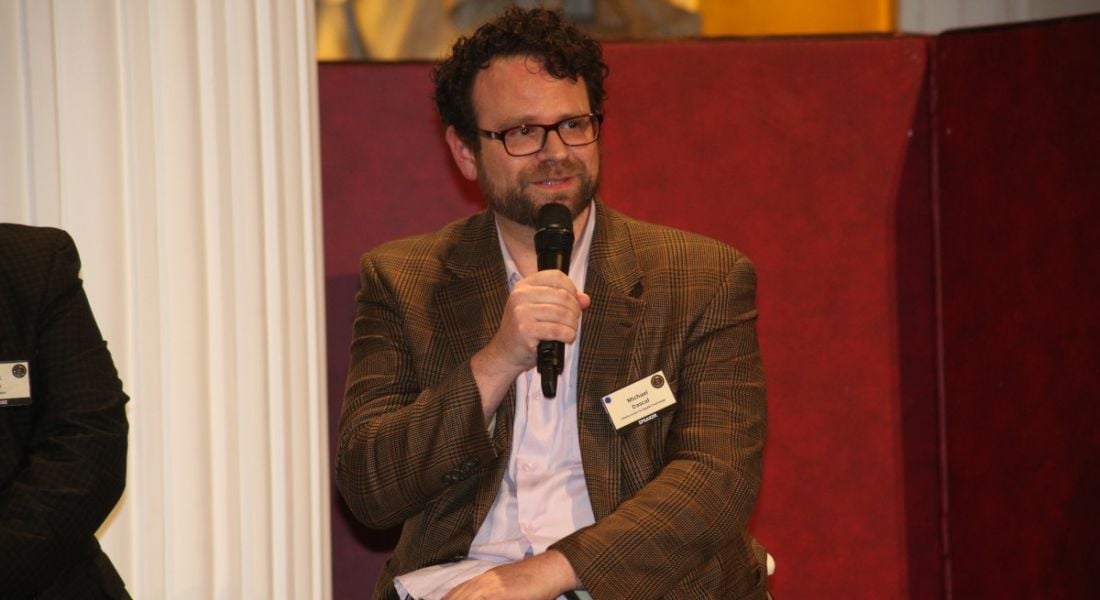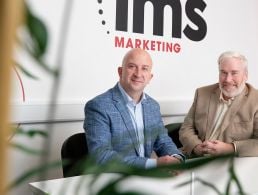Fidelity’s Michael Dascal discusses his work in the quantum ecosystem and what he enjoys about being ‘knee deep’ in the area.
When Michael Dascal recalls first learning about quantum mechanics at McGill University, he describes being “enchanted” with the subject.
During his graduate studies, he spent some time trying to figure out how to “reconcile the classical world we experience with what quantum physics describes about the universe”.
However, this approach to quantum changed during his PhD studies, when he began to think of quantum phenomena as a resource.
“Here, the question was not ‘Why do we experience a classical world if the universe is quantum?’ but rather ‘What does quantum mechanics allow us to do that we couldn’t do before?’”
Dascal, who now works as director of quantum product management at Fidelity Investments Ireland, had diverse experience prior to working in quantum which he considers to have sparked his interest in the industry side of the quantum computing ecosystem. He completed his undergraduate studies in philosophy, linguistics and physics before working in product marketing and branding. After a decade of working in this area, Dascal began his graduate studies in the philosophy and foundation of physics.
“While I’m not a physicist or computer scientist, I’ve devoted most of my life to understanding the fundamental physical theory that makes this new computational paradigm possible and what I sought (and found!) was the chance to help contribute to the transformation of this theory into useful technology.”
‘There is no right way to be in the quantum ecosystem’
What were the biggest surprises or challenges you encountered on your career path and how did you deal with them?
Despite having worked in industry before grad school, my jump back out of academia at the end of my PhD was likely one of the biggest hurdles I faced. PhD programmes rarely include any sort of training for roles outside of academia and so when I decided to make the move, I began by simply speaking to people. I spoke to both junior and senior professors, software engineers, professional consultants, product managers, engineering managers and more, all to get a better feel for where academic and industry career paths overlapped and where they diverged.
I got a better feel for what it would be like to work in a large, tech-first corporation and then researched what working in a corporate research and innovation team would look like. Making the jump successfully was a concerted effort, but not a difficult one – and it is one that I believe is worth highlighting given how many PhD graduates find themselves wanted to leave academia (or unable to stay) without knowing how to navigate the corporate space.
All this said, I believe that part of the reason my transition has been so successful is the culture and the values I’ve experienced at Fidelity and in the Fidelity Centre for Applied Technology (FCAT). I believe we have exceptionally forward-thinking leadership teams (at both the regional and international levels) that deeply understand the value of a diverse and creative workforce – and the benefits of an environment that embraces the unique expertise each individual brings.
Was there any one person who was particularly influential as your career developed?
There’s no question that I wouldn’t be here without my doctoral supervisor, Jeffrey Bub. We all hear stories about exceptionally terrible PhD supervisors, but never stories about the exceptionally good ones! From the moment I began my PhD, Jeff (and his wife Robin!) offered as much of his time as I wanted and more importantly, he provided the right level of research direction and support that I needed to learn – including learning how to fail, which is so important and so often neglected.
What do you enjoy about your job?
It’s difficult not to enjoy being knee-deep in technologies that will have massive impacts on society – and being part of shaping how they develop. That aside though, I think Fidelity and FCAT are exceptionally good at encouraging open, collaborative efforts – and promoting a certain academic freedom that allows for opportunities you would never have expected in a major financial services institution.
I would be remiss if I didn’t also acknowledge the values we see in Fidelity. The FCAT team remains highly cognisant of the socio-cultural impact of the technologies we research and we take this to heart when we develop new product ideas and capabilities. The Fidelity Ireland team is also very active in local communities – and not because of any mandate to do so, but rather because the people here simply care about others’ welfare. The way I see it, this is a company built on the idea that it succeeds when its customers are better prepared for their futures and this attitude reverberates through its community at every level.
What aspects of your personality do you feel make you suited to this job?
I believe that the somewhat unusual background discussed above has been key to my success at Fidelity and in the quantum ecosystem generally. My role has allowed me to combine a love of the physics and technology with the thrill I get out of creative and strategic problem-solving, communicating technical concepts more broadly, and generally interacting with people and companies that are making a difference.
That said, this isn’t vital to success in this role. It’s a mix of personality types that leads to success in a company like Fidelity and in emerging technology ecosystems. I believe the only requirement is an ability to communicate and collaborate compassionately – and to recognise that a mix of different types of people is what will lead to positive outcomes.
What advice would you give to those considering a career in this area, or just starting out in one?
First off, there is no ‘right way’ to be in the quantum ecosystem. This is a new space that’s being shaped as it gets built and everyone is welcome. Moreover, there’s a skills gap in the market, so there’s ample opportunity for anyone who understands quantum to get involved.
At the moment, it can be tricky to break into any research position without an advanced degree in physics, computer science or a related field and with some exposure to quantum information theory. However, there are an increasing number of new paths opening up, including for example, corporate-based PhDs and post-docs, graduate-level online courses and high-quality hackathons that give developers first-hand experience of creating quantum code.
That said, there are more and more non-research positions being posted just as you would expect from any ecosystem, from product to business development to marketing to finance. Don’t think that a lack of experience in quantum will necessarily prevent you from getting involved here.
Most importantly, I think you need to reach out to people in the space. The ecosystem is still small – in many ways it’s a real community. If you have something to bring to the table, then find people to speak to and ask them about how you can join in, whether it means getting introduced to someone who’s hiring or even getting some advice on how to fill any skills gaps you might have.
10 things you need to know direct to your inbox every weekday. Sign up for the Daily Brief, Silicon Republic’s digest of essential sci-tech news.




